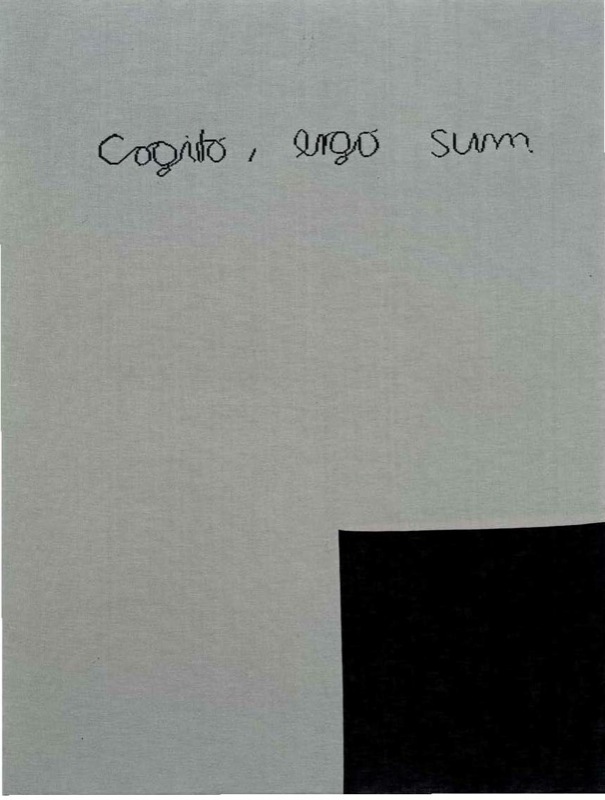Rosemarie Trockel
Schwerte Germany , lives and works in Cologne
Cogito, ergo sum
1988
knitted wool on linen
210 x 160 cm, ed. 3/3
1996.RT.10
‘I think, therefore I am.’ With these words Descartes expressed the modern conviction that man, as a rational being, establishes his own existence. This famous phrase, Cogito, ergo sum, can also be read on Rosemarie Trockel’s knitted painting from 1988 which has this title. The Cartesian ‘I’ is implicitly masculine: until the twentieth century it was assumed that the ‘weaker’ female sex was not only physically, but also intellectually inferior to the male. Also in the visual arts women were long considered unworthy.
By appropriating the words of Descartes, Trockel claims the right to think independently. With her work she deliberately places herself within the traditions of philosophy and art which, throughout history, have primarily been determined by men. Trockel does this, however, with a certain degree of irony. She allows the traditionally feminine technique of knitting, for instance, to be carried out by a computer-controlled machine. The connotations ‘handiwork’ (feminine) and ‘industrial production’ (masculine) clash as a result.
At the same time Trockel seems to question the presumed supremacy of reason. The irregular handwriting in which the words are written points to the interrelationship of body and mind, as well as to the fragility of their interaction. Furthermore, the black square in the lower right corner can be regarded as the antithesis, as it were, of the rationalism that Descartes represented. With this Trockel is referring to Kasimir Malevich, who ushered in Suprematism with his Black Square in 1915. Malevich believed that man’s ability to think rationally and in terms of practical use has, in fact, separated him from the rest of creation. He aspired to an intuitive experience of reality and attempted to restore man’s oneness with the cosmos in the abstraction of Suprematism.
The black surface likewise alludes to a work by the German artist Sigmar Polke. In his painting Höhere Wesen befahlen: rechte obere Ecke schwarz malen! (‘Higher Beings Commanded: Paint the Top Right Corner Black!) from 1969, we do indeed see a black corner at the upper right. Polke ridicules the idea of ‘divine inspiration’ in the making of an artwork. By allowing the work to be carried out by a knitting machine, Trockel takes this a step further than Polke.
